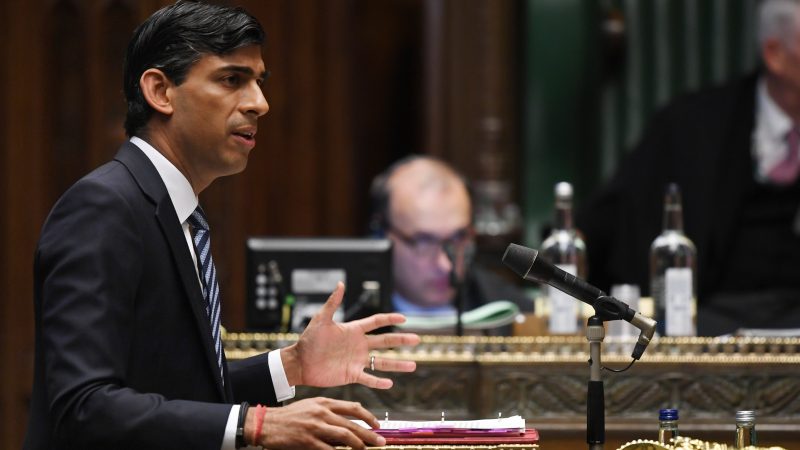
New research has found that only 230,000 jobs will be saved by the Chancellor’s new job support schemes in the coronavirus pandemic while predicting that just under two million people in otherwise viable work will be made unemployed.
The analysis by the Institute of Public Policy Research (IPPR) published today indicates that Rishi Sunak’s new employment support programme and job retention bonus will not make it viable for many businesses to retain their staff.
The two schemes were announced as replacements for furlough, which will be withdrawn at the end of October, but IPPR has argued that the policies will only benefit those who earn between £625 and £987 a month, around 10% of workers.
Employees who earn less than that figure do not meet the requirements for the job retention bonus, while for those who earn more the special Covid retention bonus is too small to justify keeping them employed.
IPPR previously predicted that roughly two million viable jobs will still need support when furlough comes to an end. Just 230,000 workers are set to benefit from the new support scheme, meaning a remaining 1.8 million are at risk of unemployment.
Commenting on the new findings, IPPR senior economist Carsten Jung said: “It is shocking how narrow the range of workers is who would benefit from the current government schemes.
“Overall, nine in ten jobs at risk will not be saved by the schemes, at great and wider economic cost. A design change to employment support schemes could save hundreds of thousands of viable jobs and hugely improve value for money.
“It would target resources at those firms that truly need it rather than paying out money to all firms that used job support schemes at some point – including those that are now doing fine or even profited from the pandemic.”
The job retention bonus, announced by the Chancellor in July, will see employers get a £1,000 bonus for each furloughed employee that they bring back to work and keep on the payroll until at least January next year.
Under the recently unveiled job support scheme, people who work at least a third of their normal hours will have their worked hours paid as usual with the government and their employer each covering 33% of the hours not worked.
But the new research from the IPPR indicates that neither measure will offer the same level of job protection as the furlough scheme, and the think tank has put forward a variety of proposed reforms to make the measures more effective.
The organisation has suggested that the government should convert the one-off job retention bonus payments into a monthly payment based on the number of hours an employee has worked part-time, up to a ceiling of £2,500.
The new payments would be aimed at encouraging part-time work and would be targeted exclusively at firms that qualify for the job support scheme, which means companies without the need for support would not be able to receive funding.
The report also recommended increasing the generosity of the job support scheme by 10%, meaning the government would cover 43% rather than 33% of a worker’s wage. This would help reduce the cost of saving jobs for participating companies.
The more targeted proposals would cost an estimated £7.4bn compared to the £7.5bn set aside for the job retention bonus, meaning the new reforms would actually save the government more money in the long run.
IPPR associate director Clare McNeil added: “It is absolutely right for the government to bring health and economic measures in line with each other – recognising that businesses forced to close due to lockdown measures need compensation to do so and to protect jobs and incomes.
“But a far larger number of people are being abandoned by government due to the flawed design of the job support scheme. We estimate that only one in ten workers in viable jobs will be supported by this scheme.”
McNeil concluded: “What we need is a part-time work subsidy that avoids mass redundancies while allowing more employees to keep their jobs on fewer hours.”
The intervention from IPPR follows repeated criticism from Labour on the flaws on the schemes in recent weeks. The party has stressed that the job support scheme, designed to protect “viable jobs”, does not offer sector-specific help.
Anneliese Dodds wrote to her counterpart Sunak this month to highlight seven ways that the support scheme “fails Britain’s workers”. She accused the Chancellor of returning to Margaret Thatcher’s “sink or swim” jobs mentality.
The party previously predicted as many as half of those who work in hospitality could be at risk of losing their jobs due to the lack of support in the scheme due to the excess costs being placed on employers under the scheme.




More from LabourList
‘Labour promised to make work pay. Now it must deliver for young people’
‘Council Tax shouldn’t punish those who have the least or those we owe the most’
Two-thirds of Labour members say government has made too many policy U-turns, poll reveals